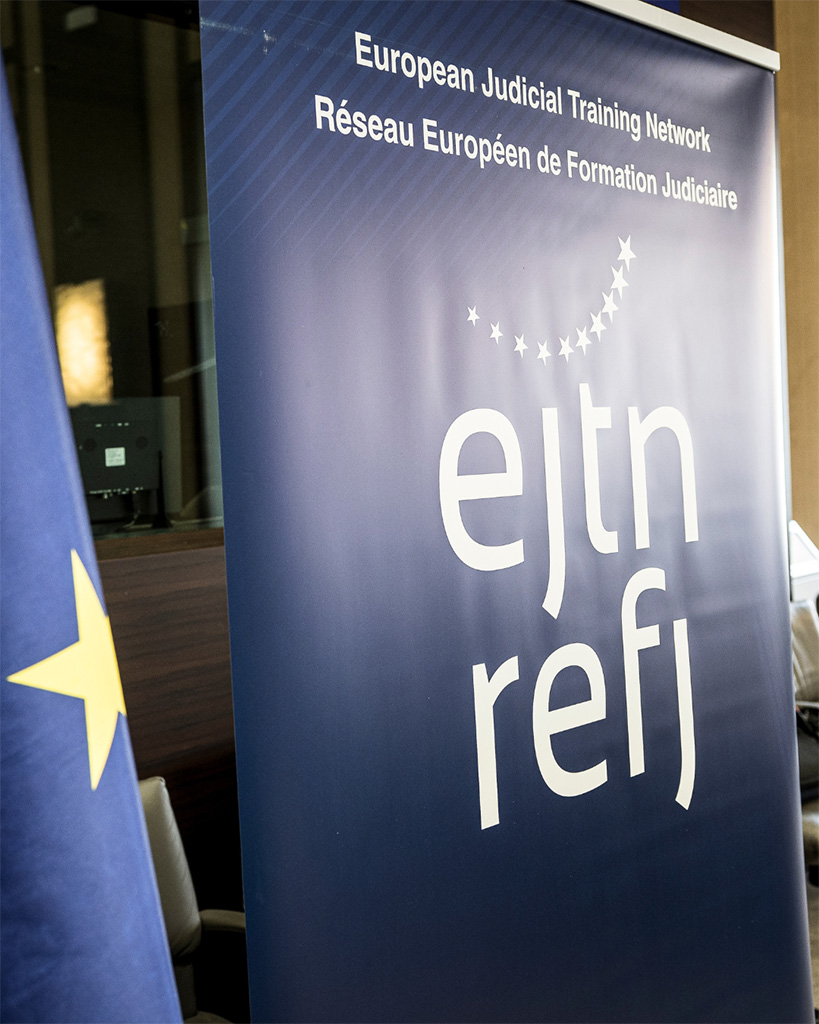Exchanges

Exchanges
Exchanges in courts, prosecution offices and judicial training institutions of the EU Member States allow participants to learn about the judicial system of the host country, attend court hearings, and exchange views and expertise with their peers.
General exchanges
In a General exchange, a participant has the unique opportunity to actively explore another judicial culture by being hosted for one week in the court or prosecution office of another EU Member State.
After an introduction to the judicial system of the host country, the participant is immersed into the daily work of a national court or prosecution office. The exchange format offers room for discussions, debates, and networking with fellow foreign judges, prosecutors and court staff.
Through visits in high-level institutions of the host country and meetings with other professionals such as law enforcement or civil society, participants get a comprehensive overview of the work of a judge, prosecutor or court staff in another country.
General exchanges are designed to foster mutual trust and understanding as well as building a feeling of belonging to a common judicial area among the EU judiciary.
Useful documents
Specialised exchanges
Through a Specialised exchange, judges, prosecutors and court/prosecution staff extend their expertise in a specific area of law in a court or prosecution office of another EU Member State. Various specialisations are offered each year in various EU Member States:
- Anti-corruption
- Asylum-Refugee law
- Banking law
- Company law
- Counter-terrorism
- Digitalisation of justice
- Domestic violence
- Environmental law
- Family law
- Financial crime
- Hate crime
- Intellectual property law
- Insolvency proceedings
- Juvenile law
- Labour law
- Mediation
- Organised crime
- Sentence enforcement
- Tax law
Every year, many places are offered in the participating EU Member States and published during the call for applications. Those places are defined by country, specialisation, target audience, language and length.
Useful documents
Judicial leaders exchanges
Focusing on issues such as media and influence on jurisdiction, digitalisation of justice, human ressources, financial and budget management or sustainable management, Judicial leaders exchanges allow court presidents, chief prosecutors and court/prosecution staff managers to shape their leadership and management skills.
Useful documents
Trainers exchanges
The Trainers exchanges at EJTN are a unique occasion for judicial trainers to exchange experiences with their peers across Europe on recent developments and best practices in judicial training.
During 5 or 10 days, participants actively explore other judicial training cultures and learn about training methodologies, pedagogical tools, and training initiatives developed by the host country.
Upon their return, they are encouraged to implement new techniques they discovered and share knowledge gained with their colleagues.
The exchange follows specific objectives and guidelines developed at EJTN, in particular the EJTN Judicial Training Principles and the European standards on judicial training – European Commission’s Pilot Project JUST/2012/JUTR/PR/0064/A4 on European Judicial Training.
Useful documents
Flyer presentation Trainers Exchanges – English
Interested in an exchange?
The call for applications for exchanges is now officially open on the EJTN Exchange Programme platform, from the 1st October until 31 October. These exchanges are scheduled to take place in 2025.
Applicants are preselected by the EJTN Members and Associate Members. Preselected applications are then submitted to the EJTN secretariat which proceeds to the allocation based on the available places in the host institutions.

